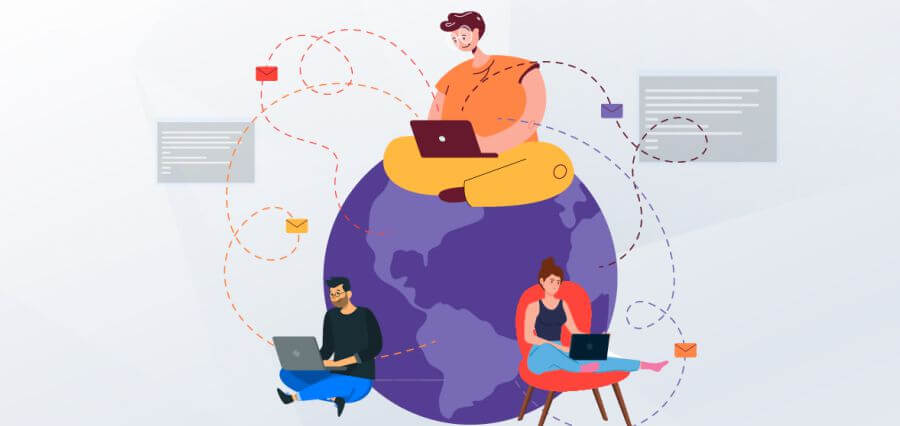Offshore software outsourcing has evolved as a strategic move for companies globally. Through outsourcing, businesses can efficiently scale their operations and innovate faster, bypassing the heavy lifting of recruiting, managing, and paying a full-time in-house team. Top software outsourcing companies are now found worldwide, with a notable concentration in Asia. The benefits are clear: significant cost savings, access to a vast talent pool, and exceptional flexibility.
Asia as a Prime Outsourcing Destination
Asia stands as a beacon for software outsourcing services due to its blend of technical proficiency, diligent work ethic, and competitive pricing. Home to a large pool of highly-skilled software developers, Asia is attractive to Western companies. From established tech hubs like India and China to emerging players like Vietnam and the Philippines, Asia is steadily claiming a significant share of the global outsourcing market.
Navigating Cultural Differences
Cultural differences can be a silent, underestimated factor that affects the collaboration between an outsource software team and the in-house department. Such differences stretch across communication styles, work ethics, and time zones.
- Communication Styles – In many Asian countries, communication tends to be more indirect than in the Western world. Context often plays a big role, and silence is used differently. Therefore, clear, open, and respectful communication protocols are vital when you outsource website development or other projects.
- Work Ethics and Attitudes – Asian work cultures may be more hierarchical, and attitudes towards time and deadlines can differ. Western managers may need to adapt their expectations and management style to align with the work ethics of their offshore software outsourcing partners.
- Time Zone Differences – One of the practical issues in offshore outsourcing is dealing with different time zones. This may seem like a small issue initially, but regular late-night or early-morning calls can lead to burnout and decreased productivity over time.
Managing Cultural Differences
Successful offshore software outsourcing relies on proactively managing cultural differences.
Clear Communication Protocols
Clear communication protocols are essential for any successful collaboration. Establishing a consistent schedule of updates and meetings ensures that everyone remains informed and aligned with project objectives.
Through the utilization of effective communication tools, misunderstandings can be minimized, and the risk of miscommunication is significantly reduced. This approach fosters a transparent environment where team members are well-informed, promoting smoother workflows and timely decision-making.
Embrace Cultural Diversity
Embracing cultural diversity goes beyond mere symbolism; it’s a proactive step towards cultivating genuine connections within teams. Encouraging cultural exchange allows team members to share their backgrounds, traditions, and perspectives, enriching the overall work experience.
In acknowledging and respecting various holidays and traditions, a sense of inclusivity and unity is established. This not only demonstrates respect but also reinforces the bonds between team members, leading to increased collaboration and mutual understanding.
Cultural Sensitivity Training
Cultural sensitivity training plays a crucial role in nurturing a cohesive work environment, especially when dealing with diverse teams. Investing in such training can be a transformative experience for all parties involved. This type of training delves into cultural norms, communication nuances, and effective conflict resolution strategies.
Equipping team members with this knowledge enhances their ability to navigate potential challenges, promoting harmony and productivity. By understanding and respecting each other’s cultural differences, conflicts arising from misunderstandings are minimized, and a more harmonious working relationship is fostered.
Building Respectful Partnerships
Beyond the contract and the numbers, outsourcing is about people and relationships. Building a strong, respectful, and mutually beneficial partnership with an outsource software team is vital.
- Setting Boundaries – Establishing clear boundaries is paramount in any collaborative effort. By outlining expectations, roles, and responsibilities right from the beginning, potential conflicts can be minimized. This clarity not only sets the tone for a harmonious working relationship but also ensures that the collaboration remains productive and mutually advantageous.
- Conflict Resolution – Effective conflict resolution strategies are essential in maintaining a healthy collaboration. Proactively developing a fair and constructive approach to resolving disputes is crucial. When issues arise, addressing them openly while keeping the partnership’s collective goals in mind helps prevent disagreements from escalating. This approach not only strengthens the bond between the onshore and offshore teams but also demonstrates a commitment to finding solutions that benefit all parties involved.
- Reward Good Work – Recognizing the value of good work is a practice that should never be underestimated. Regularly acknowledging and rewarding the accomplishments of the offshore team can have a significant positive impact. This recognition serves as a motivator, boosting team morale and instilling a sense of loyalty. When offshore team members feel that their efforts are genuinely appreciated and celebrated, their dedication to the collaboration is likely to increase, ultimately contributing to the overall success of the partnership.
Offshore software outsourcing, particularly to Asia, offers compelling benefits for companies looking to scale and innovate. However, it’s vital to approach it with an open, informed, and respectful mindset. Understanding and embracing cultural differences, establishing clear communication protocols, and building a strong partnership based on trust and respect are key.
By doing so, companies can unlock the full potential of offshore outsourcing and cultivate a fruitful, long-term relationship with top software outsourcing companies in Asia.


